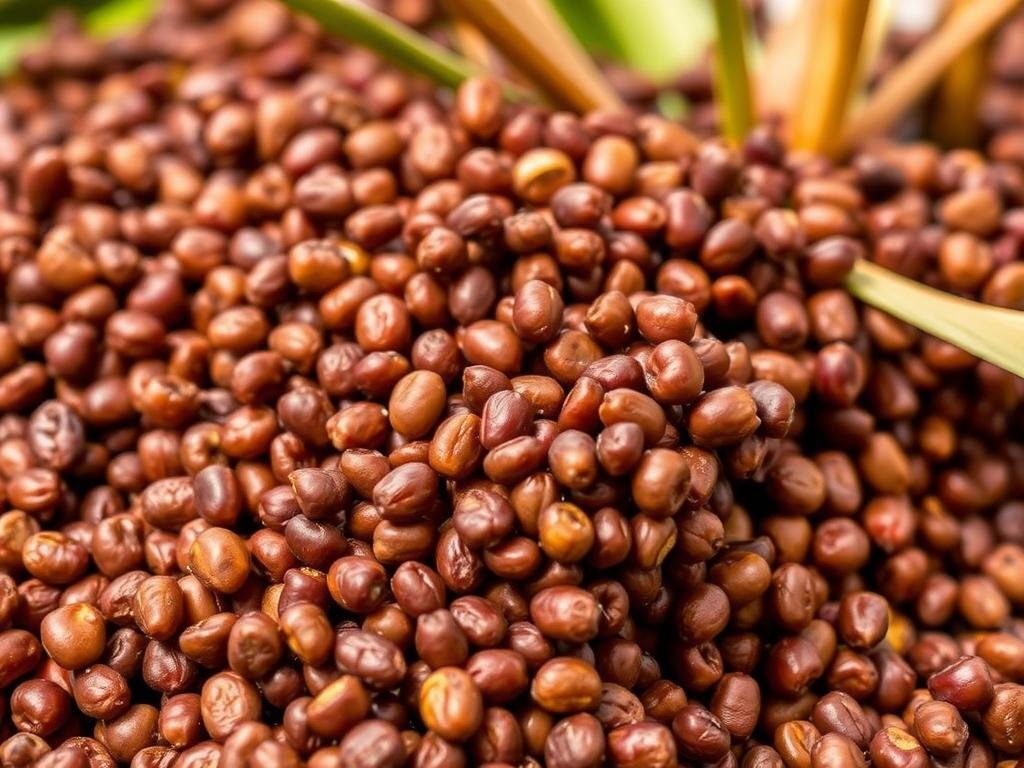The global demand for sustainable animal feed and renewable energy is creating unprecedented shifts in the agricultural commodities sector, from the Oil Palm Fruit Bunch to its many derivatives. For insiders, the Palm Kernel Expeller Export Market is a space brimming with potential, forecasted for significant evolution by 2025. Understanding these upcoming trends is crucial for exporters, traders, and investors looking to capitalize on new revenue streams.
Table of Contents
Understanding the Current State of the PKE Export Market
Palm Kernel Expeller (PKE), a by-product of crushing Palm Kernel to extract Palm Kernel Oil, is primarily used as a high-protein ingredient in animal feed. Major producers like Indonesia and Malaysia dominate the supply side, while key importers include New Zealand, the Netherlands, and other European Union countries where it is a staple for the dairy and cattle industries.
The dynamics of this export sector are influenced by several key factors. These include the price of competing feed ingredients like soybean meal, global Crude Palm Oil production levels, and increasingly, sustainability regulations imposed by importing nations. As reported by the Food and Agriculture Organization (FAO), the global oilcrops economy is constantly in flux, making market intelligence more valuable than ever.

Top 3 Lucrative Opportunities in the Palm Kernel Expeller Export Market for 2025
As we look towards 2025, three distinct and highly profitable opportunities are emerging. Exporters who align their strategies with these trends will be best positioned for success in the evolving market for PKE.
Opportunity #1: The Surge in Demand for Sustainable & Non-GMO Animal Feed
Modern consumers are more conscious about the environmental and ethical implications of their food. This has created a powerful demand for meat and dairy products from animals raised on sustainable and non-GMO feed. PKE, when sourced from certified plantations, fits this description perfectly.
The European Union’s Green Deal and “Farm to Fork” strategy are placing stringent sustainability requirements on all agricultural imports. This is a challenge that savvy exporters can turn into a competitive advantage. Obtaining certifications from bodies like the Roundtable on Sustainable Palm Oil (RSPO) is no longer optional—it’s a gateway to premium markets. Certified PKE can command higher prices and secure long-term contracts with buyers who prioritize sustainability.
Opportunity #2: Tapping into the Biofuel and Biomass Energy Sector
Beyond animal feed, PKE is gaining recognition as an efficient and carbon-neutral biomass fuel. With its high calorific value and low ash content, it is an excellent substitute for coal in industrial boilers and power plants, often used alongside other sources like the Palm Kernel Shell. This diversification is a game-changer for the PKE export market.
Countries like Japan and South Korea are aggressively pursuing renewable energy targets to reduce their carbon footprint. According to the International Renewable Energy Agency (IRENA), biomass is a critical component of this transition. Exporters can tap into this by processing PKE into pellets, which are easier to transport and use in co-firing power plants. This opens up an entirely new industrial client base outside of traditional agriculture.

Opportunity #3: Innovation in PKE Processing for High-Value Applications
The third major opportunity lies in technological innovation. Raw PKE has a high fiber content, which limits its digestibility for non-ruminant animals like poultry and fish. However, new processing techniques, such as solid-state fermentation, are changing the game.
By using microorganisms to break down the tough fibers, processors can significantly enhance the nutritional profile of PKE, making it a viable protein source for the booming aquaculture industry. As detailed in studies published on platforms like ScienceDirect, fermented PKE shows great promise in aquafeed. This value-added approach allows producers to target high-growth sectors and move up the value chain, away from the volatility of the bulk commodity market.
Navigating Challenges in the 2025 PKE Export Market
While the opportunities are significant, this export sector is not without its challenges. Price volatility, complex logistics, and the negative stigma associated with unsustainable palm oil production remain key concerns. Success requires robust risk management and a commitment to transparency.
Exporters must focus on building resilient supply chains and using traceability systems to prove the sustainable origin of their products. By proactively addressing these challenges, you can build trust with international buyers and secure a stable footing in the market.
Partner with the Experts
Ready to capitalize on the lucrative PKE export market? At Makmur Amanah Sejahtera, we are your trusted partner in navigating this dynamic industry. We supply high-quality, certified palm products, including premium Palm Kernel Expeller, Palm Kernel Shells for biomass, and high-grade Crude Palm Oil. Our commitment to sustainability and quality ensures you meet the demands of the most discerning international buyers.
Contact us today to secure your supply chain for 2025 and beyond. Reach out via WhatsApp at +6282140002198 or email us at admin@makmuramanah.co.id to discuss your needs with our export specialists.
Conclusion: The Future is Bright
The market for Palm Kernel Expeller is at a pivotal point. The convergence of consumer demand for sustainability, global shifts towards renewable energy, and technological innovation in feed processing is creating a landscape ripe with opportunity. By focusing on certified sustainable feed, exploring the biomass energy sector, and investing in value-added processing, exporters can unlock significant growth and profitability heading into 2025 and beyond.

